The Army has been drafted in to help NHS staff get to work in Scottish hospitals.
Using 4×4 vehicles provided by the Ministry of Defence, Police Scotland and the Scottish Fire and Rescue Service, soldiers started moving staff on Thursday evening. They will support shift changes at the Royal Infirmary of Edinburgh and the Western General hospitals while the severe weather continues.
Defence Secretary Gavin Williamson said:
“Our Armed Forces stand ready to help as Britain is hit by severe weather.
Our service personnel are showing great dedication and a spirited sense of duty as they support local authorities and keep people safe.”
That’s not all, staff at Scotland’s largest health board have been sharing their stories as they pull together to put patients first. As the ‘beast from the east’ brought blizzard conditions to Scotland, there were stories of staff working on past their shift times, walking miles to work, offering lifts to stranded colleagues and even sleepovers at work to make sure they were there for our patients the next day.
Staff have been posting on the very popular Queen Elizabeth University Hospital Glasgow staff Facebook page to offer lifts to and from work and post their shared stories of camaraderie.
The new Queen Elizabeth University Hospital in Glasgow is the biggest single-site employer in Scotland, employing around 11,000 staff.
Helen Watson a staff nurse on ward 5D at the hospital shared a light-hearted message of her and fellow staff nurses Louise and Imelda with the message #24 hour party people, #I survived the M8 and #Ain’t no snow flake stopping me.
She said: “I was working the night shift on Tuesday and drove home to West Lothian but left home again at 3.30pm to come in for the night shift.
Not everyone has made it in but everyone is doing their best, walking, sharing lifts and even sleeping over to make sure they are here for patients in the morning. You don’t go into the NHS to get any reward; it’s because you have a passion. We need to put patients first.
I have never been prouder to work for the NHS; everyone has rallied round and its great to be part of this wonderful NHS!”
There have also been reports of QEUH facilities staff going the extra mile to keep staff and patients fed and wards clean, members of the public stopping in 4x4s to offer staff lifts into our hospitals, companies offering the use of their 4×4 vehicles and drivers to ensure clinical staff made it to their shift on time and staff being given scrubs for pyjamas and blankets to sleep over in comfort.
NHSGGC Director of Human Resources, Anne MacPherson said:
“We are greatly impressed and appreciative of the efforts made by our staff to care for patients in the most challenging of circumstances. This has happened all over the Board area ,in our hospitals and community settings.
All our clinical and non clinical teams have been working behind-the-scenes to keep our services running.
All our staff are essential and where staff can’t get to their usual place of work we are asking them to report to their nearest NHSGGC site to assist colleagues where they can.”



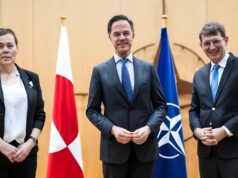
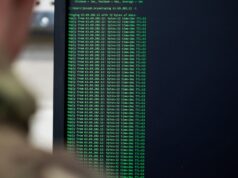
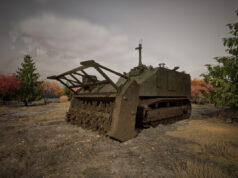
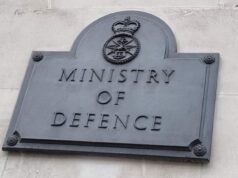
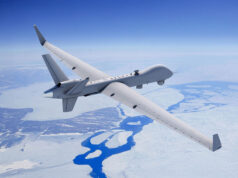
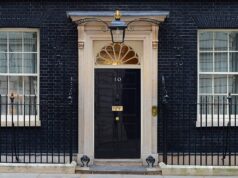

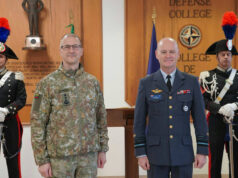
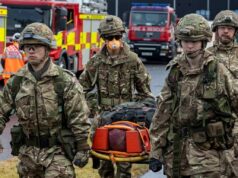
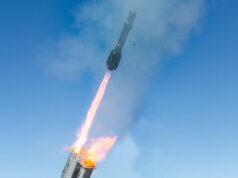

During the 1998 ( I think ) SDSR they made a big play on the Territorial army’s Infantry Battalions being transformed into Civil Contingencies Reaction Force Battalions, as usual while scrapping things elsewhere left right and centre.
Where are they now a situation like this being ideal to call them out to assist the civil power?
Great opportunity to raise awareness of what our armed forces can do and improve support for them.
Let’s get them using the great kit – nurses on Chinnocks to hospitals, Vikings reaching cut off villages and how about some challengers with snow ploughs lol!!!
Obviously challenger arrv a no no but Chinook Viking yes why not.
Because the raf don’t like flying weekends, let alone snow days.
Nice sentiment but we’ve had plenty of natural events like this in the past where the armed forces have come to the rescue and after a brief celebration of their service they get thrown into the trash until the next time they need to rescue people from a flood or blizzard.
Would love to see that.
Challenger 2s with snow ploughs. Likely they would cause quite a bit of damage
Ah, the NHS – who according to the evening standard, now operate a Tide class replenishment tanker.
Worlds largest blood transfusion machine I think.
Anyway, good to see our forces helping those in need out.
Bearing in mind possible future operations in the Arctic, I’d be interested to know what in the way of Snowcats the Arny has. Can’t find anything though, but I guess they or the RAF must have.
Interestingly the NHS actually get charged if they request support from the armed forces. The specific hospital or community trust gets a bill. The madness of the internal market is alive and well in all our services, health, emergency and armed.